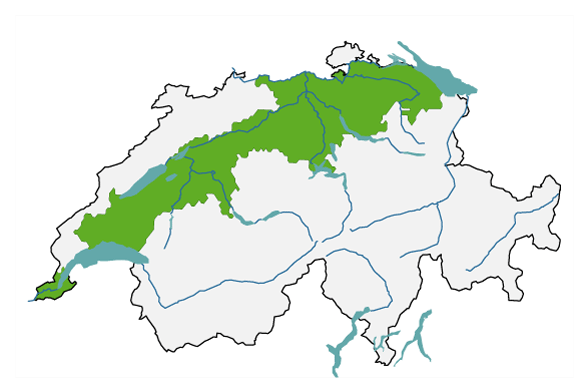The major region of the Swiss plateau stretches from Lake Geneva to Lake Constance, and is the country’s most populated area. The large towns in the region are located below altitudes of 600 m above sea level, where the effects of increasing heat will become very apparent. This page provides insights into today’s climate in the Swiss plateau as well as detailed information about possible changes in the future.

Last modification 07.09.2023





